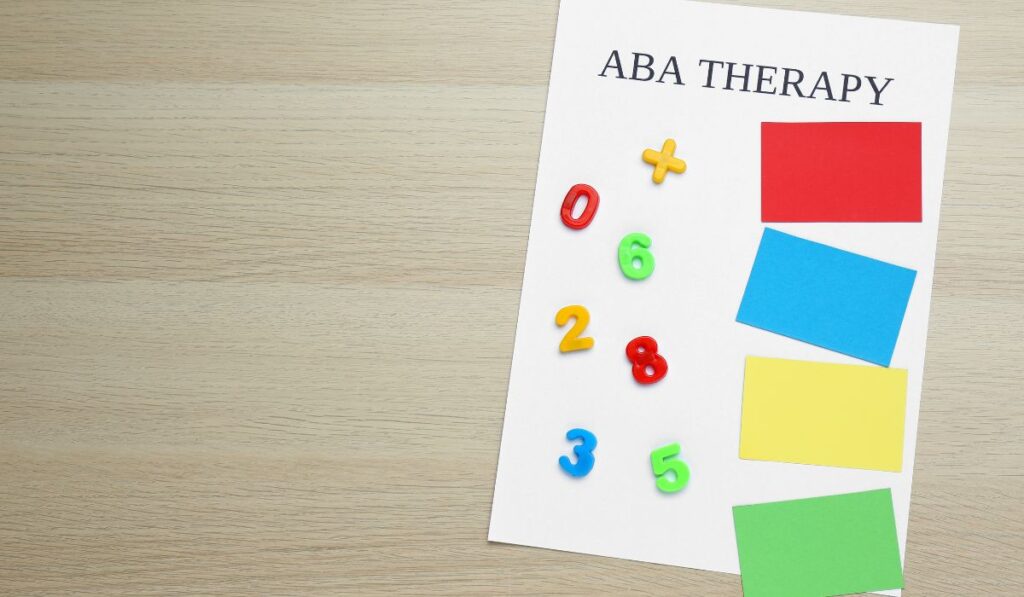Starting school is a major milestone in a child’s life. For many children with developmental delays or challenges, this transition can be both exciting and overwhelming. School readiness encompasses much more than academic knowledge—it includes a range of emotional, behavioral, and social skills necessary for success in a classroom environment. Applied Behavior Analysis (ABA) therapy has proven to be a highly effective approach for helping children develop the essential skills needed to thrive in a school setting.
Understanding School Readiness
School readiness refers to a child’s ability to cope with the demands of a school environment. This includes the ability to follow directions, interact with peers and teachers, sit and attend to tasks, manage emotions, and demonstrate early academic skills such as recognizing letters, numbers, shapes, and colors.
For children with developmental disorders such as autism, these foundational skills may not develop at the same pace as their peers. This is where ABA therapy plays a critical role.
What Is ABA Therapy?
Applied Behavior Analysis (ABA) is a research-based therapy that focuses on understanding and improving behaviors through systematic interventions. ABA therapy breaks down complex tasks into manageable steps and uses reinforcement strategies to encourage positive behaviors while reducing challenging ones.
ABA therapy is highly individualized and data-driven, making it an ideal tool for helping children build the skills necessary for a successful transition to school.
Key School Readiness Skills Developed Through ABA Therapy
1. Following Directions
In a classroom, the ability to follow simple and complex directions is essential. Whether it’s lining up after recess or completing a worksheet, children must be able to understand and act on instructions.
ABA therapists use various techniques, including modeling, prompts, and reinforcement, to teach children how to follow both one-step and multi-step directions. Gradually, children learn to respond to directions from different people in different settings, improving their adaptability and independence.
2. Communication Skills
Effective communication is at the heart of school success. Children need to express their needs, ask for help, answer questions, and engage with teachers and peers.
ABA therapy targets communication skills through methods such as verbal behavior therapy, Picture Exchange Communication System (PECS), and other augmentative communication tools. Whether a child is nonverbal or has limited speech, ABA therapists work to strengthen expressive and receptive language skills.
3. Social Interaction
Forming friendships and working cooperatively with others are vital parts of the school experience. Many children struggle with social cues, turn-taking, or initiating play.
ABA therapy incorporates structured social skills training, peer modeling, and role-playing to teach children how to navigate social interactions. By learning how to share, take turns, wait, and maintain conversations, children become more confident and socially competent.
4. Emotional Regulation
The ability to manage emotions and behavior is a cornerstone of school readiness. Children must learn how to handle frustration, delay gratification, and transition between activities without meltdowns.
ABA therapists use strategies such as visual schedules, token economies, and self-monitoring techniques to help children recognize and manage their emotions. These interventions foster resilience and flexibility, preparing children for the varied emotional demands of the classroom.
5. Attention and Task Completion
Sustained attention and the ability to complete tasks are essential for academic success. Children must learn to stay focused during lessons and follow through on assignments.
ABA therapy uses techniques like task analysis and positive reinforcement to teach children how to remain engaged and on-task. By gradually increasing the duration and complexity of tasks, therapists help build attention span and work stamina.
6. Independence and Self-Help Skills
Teachers expect children to manage basic tasks like unpacking their backpack, using the bathroom, washing hands, and eating lunch without constant assistance.
ABA therapy promotes independence by teaching these life skills in a structured and supportive environment. Therapists use chaining and prompting methods to help children learn each step of a self-help routine, increasing confidence and autonomy.
7. Pre-Academic Skills
While social and behavioral readiness is critical, children also benefit from early academic exposure. Recognizing letters, numbers, shapes, and colors, as well as understanding basic concepts like sorting and matching, lays the groundwork for future learning.
ABA therapy includes customized programs that target pre-academic skills using engaging, hands-on activities. Through repetition and reinforcement, children gain the confidence and competence they need to participate in classroom learning.
The Role of Parents and Teachers
School readiness through ABA therapy isn’t limited to the therapy setting—it involves collaboration between parents, therapists, and educators. ABA therapists often work closely with families to provide parent training and strategies that can be implemented at home. This consistency helps children generalize their skills across different environments.
Additionally, when children are preparing to transition to school, ABA providers may coordinate with teachers and school staff to ensure a smooth handoff. This might include developing individualized education plans (IEPs), providing behavioral support plans, and offering recommendations for classroom accommodations.
When to Start ABA for School Readiness
Early intervention is key. The earlier a child begins ABA therapy, the more time there is to develop and strengthen skills before entering school. However, it’s never too late to benefit from ABA therapy. Even older children preparing for later school transitions can experience meaningful progress through a targeted school readiness program.
If you’re searching for the best ABA therapy in Atlanta, Aim Higher ABA here to help. Our dedicated team provides personalized, in-home and center-based ABA services designed to build essential skills and support each child’s growth. With a focus on school readiness, communication, and social development, we’re committed to helping your child succeed every step of the way.
Conclusion
School readiness encompasses more than just academic preparation—it’s about equipping children with the behavioral, social, emotional, and communication skills needed to succeed in a structured educational environment. ABA therapy offers a proven, individualized approach to building these essential skills.
Whether your child is entering preschool, kindergarten, or transitioning to a new classroom setting, ABA therapy can provide the support needed to make that experience positive and successful. By focusing on the unique needs of each child and working closely with families and educators, ABA therapy lays the foundation for lifelong learning and achievement.
- How ABA Therapy Builds Essential Skills for School Readiness
- Discover how ABA therapy helps children build key skills for school readiness, including communication, focus, and social interaction.
- #health#aba# autism
Related posts:
 Best Topical Finasteride & Minoxidil Spray for Hair Regrowth
Best Topical Finasteride & Minoxidil Spray for Hair Regrowth
 Blue Grass Guppy: A Mesmerizing Addition to Your Aquarium Life
Blue Grass Guppy: A Mesmerizing Addition to Your Aquarium Life
 Famotidine Pepcid for Cats: What Pet Owners Need to Know for Their Feline Friend
Famotidine Pepcid for Cats: What Pet Owners Need to Know for Their Feline Friend
 The Benefits of Home-Based ABA Therapy for Children with Autism
The Benefits of Home-Based ABA Therapy for Children with Autism
 How to Know If You Need to See a Gastro Doctor for Stomach Pain
How to Know If You Need to See a Gastro Doctor for Stomach Pain
 How Massage Therapy Can Improve Your Health: A Guide for Queens Residents
How Massage Therapy Can Improve Your Health: A Guide for Queens Residents
 A Complete Guide on the Pricing of the Composite Bonding in London
A Complete Guide on the Pricing of the Composite Bonding in London
 Your brief and useful guide to removable orthodontic appliances
Your brief and useful guide to removable orthodontic appliances








